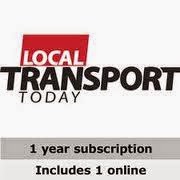On the issue of Drink Driving and the current campaign against it as promoted in your issue of the 11th December, I think it is possible to include a totally independent and expert view rather than just of those with vested interests, and non experts with hidden agendas, like BRAKE the Charity, who are very much part of a massive road safety industry.
Like taking any kind of telephone call whilst driving, alcohol consumption and driving do not mix and so I support any initiative to reduce it.
However, we must try to maintain a perspective about it which is not apparent in the article.
'Drink driving remains one of the biggest killers on our roads' we are told. But death from all causes on roads is lower than from accidents in the home and yet we do not breathalyse people at their kitchen sink, or doctors and nurses; even though death from NHS failure is about fifteen times higher than on the roads. Is it only road death that concerns us then? Of course not but it does rather beg the question: 'If this isn't either about vested interests or anti driver ideology, shouldn't we be spending just as much time on all avoidable death and injury then?'
We are told that 230 people were killed involving someone over the limit. I must point out that that doesn't mean that the accident was caused by drink driving but that a driver was over the limit and that's all. How anyone can then say, 'A further 65 deaths are caused annually by drivers, who had been drinking not over the limit', is a complete Ministry of Guesswork mystery.
If we focus only on the failure to pass a drink drive test after an accident, we lose focus on the real accident cause and that is dangerously counter productive. So we must not allow ourselves to be deceived about accident causes if we are concerned about road casualties..
Julie Townsend, an executive of BRAKE Charity, and who has no CV in accident reporting, prosecution or top road driving, is quoted predictably demanding a lowering of the drink and drive limit to zero tolerance and yet we are told that, under the present criterion, 6550 people still failed the existing test last December and Lincolnshire Police are catching 80 a month. How then will reducing the test level be effective if the current level doesn't work yet? Rather like lowering speed limits, all it will do is create more offenders who previously were and still are quite safe.
Lowering a limit simply doesn't make people more dangerous.
What is the point of lowering the drink drive limit to a point where a common head cold or lack of sleep would be far more dangerous on the road? But one thing is for sure, whenever a bar is lowered on drivers, there is money to be made, more kit to be sold and maintained, more expensive courses to be sold by course providers and so on.
I would prefer that we focus on real road safety but I am still able to advise against drinking and driving too.
Keith Peat



























